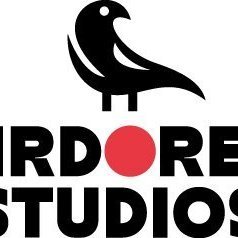Hej, letade på studio efter en tråd om just vintage instrument men hittade inte det men jag gör en egen.
Denna tråd ligger i Allmänt entligen bara för att det inte fanns en annan kategori som passade. Ett vintage instrument kan ju vara vilket instrument som helst. Bara det är gammalt.
Hur som helst.. Idén kommer av att jag nyss köpte mig en Daion Headhunter 555. Det är en semiakustisk gitarr som tillverkades runt sent 70 och tidigt 80 tal. Den modellen sägs vara ovanlig och många har aldrig sett en sådan, inte jag heller för den delen.
Killen som hade musikaffären sa att han bara hade sett en sådan gitarr till salu tidigare. Kollade runt lite på nätet och hittade väldgt lite info om just denna gitarr.
Det jag vet dock är att Daion tillverkades i Japan och var av hög kvalité.
Här kommer lite info om Daion på engelska, texten är hämtad från http://daionguitars.com/index.php
Daion History
Daion, a Japanese word that translates to "big sound", seems an apt name for a company that produced a line of guitars that to this day is known for their full bodied sound. This seems to be the defining characteristic for fine vintage guitars, one that crops up in all their advertising and in reviews of the various models across the different guitar websites, even by players who have never heard of the brand or seen their ads. The logo for the company, a stylized tuning fork, also resembles a stylized lyre or even a stylized antelope skull, for which it has been mistaken.
Daion guitars were built by Japanese guitar manufacturer Yamaki (a Japanese word meaning "happy trees on the mountain") in the late 70s and early 80s. Yamaki's guitar designer Hirotsugu Teradaira was a pioneer in the use of brass and solid cedar as design materials. Yamaki had been producing copies of Martins and other fine guitars for some time and felt that their products were getting lost among the other Japanese imports in the American market. They teamed up with an American music distributor based in Waco, Texas named MCI, to redefine their brand and redesign their line. The MCI team also supplied design ideas for their line of electric guitars and basses.
One of the many unique features of the electric guitars was the 9 piece Rosewood & Maple neck through body design that gives the Power Series their singular look. The melding of these different tonewoods and the particular alignment of their woodgrains provided for exceptional strength and a supurb tone. Despite the craftsmanship of these guitars and the fresh marketing approach, much of the American music scene of this period was focused on the novelty of the sythesizer and its many variations and implications. The laminate technique developed for use in the Daion neck was adapted sucessfully to golf clubs -- this was before graphite had come into such wide use. As the US market dwindled and MCI closed shop, Yamaki discontinued much of their production line of the Daion brand of guitars and began making golf clubs.
Interestingly, the Daion brand did live on past the dissolution of their partnership with MCI. Several of the key players from MCI were on the faculty of McLennan Community College in Waco in the music department. They offered Daion guitars to their students at reduced prices. I currently have one of these guitars in my possession that a former MCC student bought, it is branded Daion but does not sport the Daion logo, rather a unique headstock design and position markers and is stamped on the inside with a Yamaki model number. The exact date of its manufacture and purchase is unknown so it is not clear if this guitar is from the "post-MCI" era.
Här kommer slutligen en bild på den gitarr som jag har köpt.
//Anders




